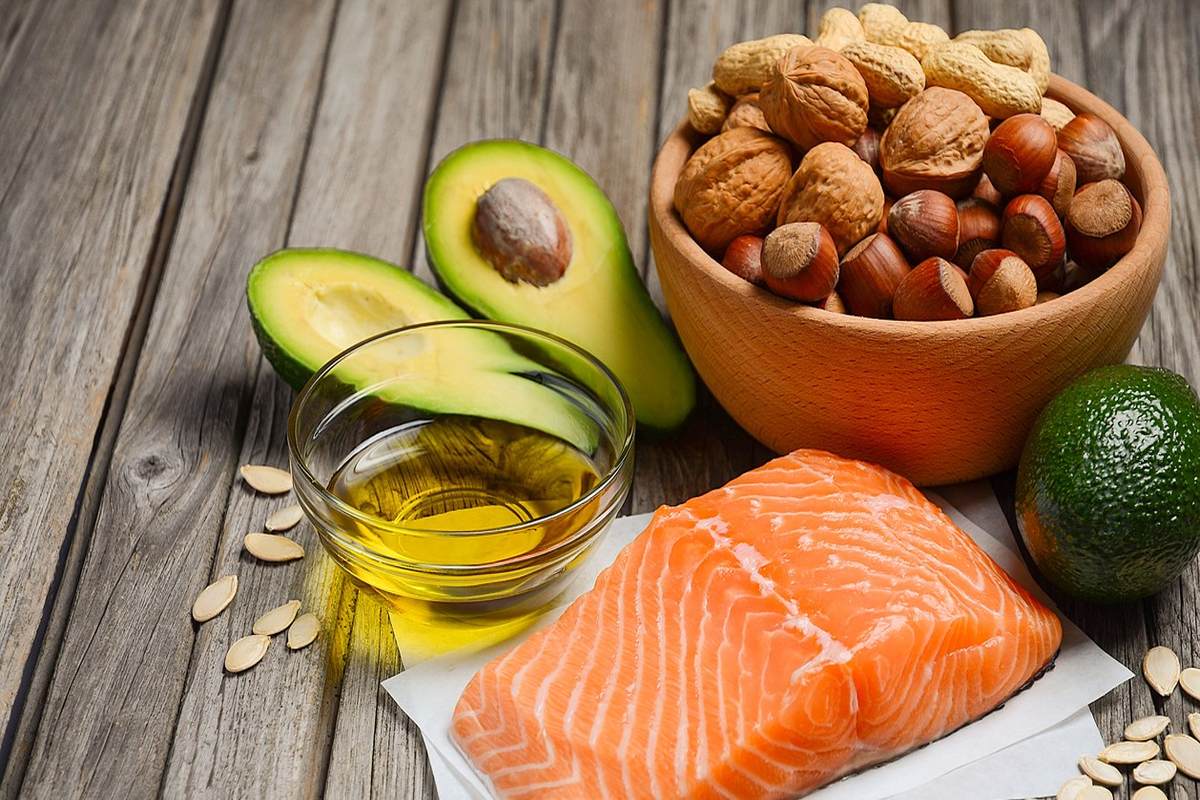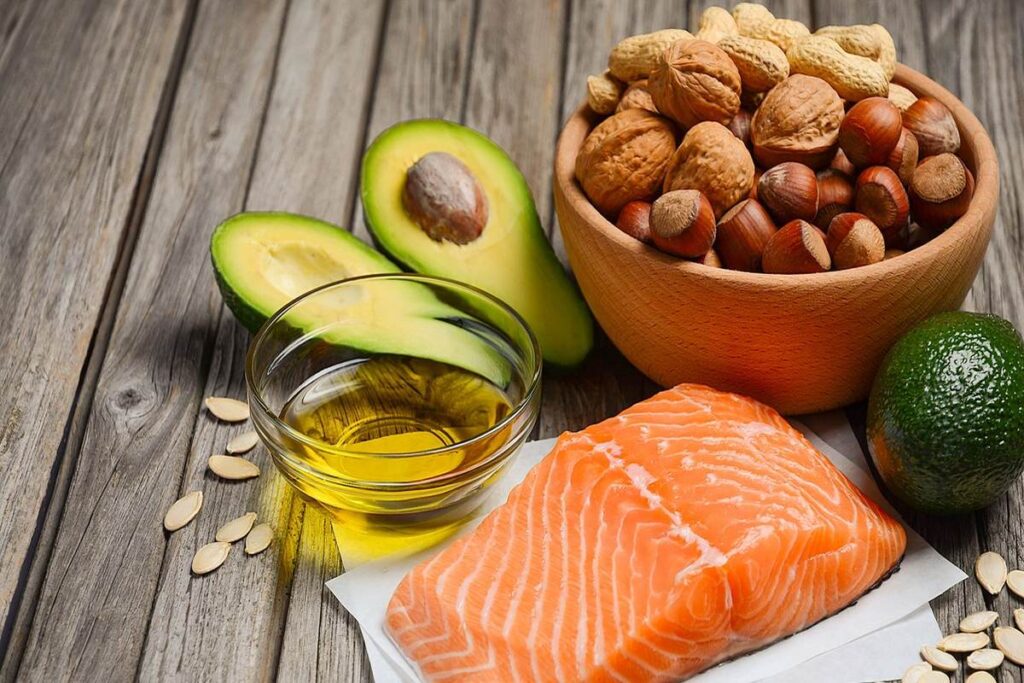Anti-inflammatory Foods: Top 20 Best Options
In this article, we’ve highlighted the 20 best anti-inflammatory foods and their key benefits for the body’s health.
An anti-inflammatory diet helps prevent and even reduce silent inflammation, which might be present in your body and cause harm to your health, along with symptoms like pain, redness, swelling, and heat. However, the only way to guarantee this type of inflammation is through medical tests.
What is inflammation and what are its types?
First, it’s important to understand that inflammation is a natural response of the body to protect itself from infections or tissue injuries. When it appears in a visible part of the body, like the skin, it’s normal to see signs of redness and heat in the affected area. There are two types of inflammation: chronic and acute.
These two types of inflammation vary according to their duration and the development of the inflammatory process. Chronic inflammation has a subtype, known as subclinical chronic inflammation or silent inflammation, which is low-grade inflammation. It is this type of inflammation that can be treated with anti-inflammatory foods.

Signs of silent inflammation:
Silent inflammation is often imperceptible, meaning it doesn’t always present symptoms. However, it can still be detected through specific blood tests. In some cases, symptoms like swelling, oily skin, dark circles, irregular bowel movements, acne, and energy fluctuations might occur.
What causes silent inflammation?
It’s important to know that all types of inflammation are linked to an unhealthy lifestyle, such as an inflammatory diet, lack of exercise, and constant stress.
What is an anti-inflammatory diet?
An anti-inflammatory diet aims to naturally combat inflammatory processes. It helps reduce inflammation in the body and supports the prevention and treatment of diseases and complications.
In this diet, pro-inflammatory foods are avoided. In more restrictive anti-inflammatory diets, large food groups or nutrients, like wheat, corn, soy, red meat, dairy products, and others, are eliminated. However, such extreme diets are considered questionable by some nutritionists and health professionals.
It’s important to avoid an inflammatory diet, which is one of the main causes of chronic silent inflammation due to the intake of foods rich in toxins and inflammatory substances.
To avoid silent inflammation, it’s important to steer clear of the following foods:
- Products with preservatives
- Soda and alcoholic beverages
- Gluten: bread, cakes, pizzas, and other types of pasta
- Fried foods
- Processed meats: bacon, sausages, salami, ham, and hot dogs
Benefits of an anti-inflammatory diet:
Here is a list of the main benefits of an anti-inflammatory diet that directly improve health, well-being, and longevity:
Anti-inflammatory foods for heart disease:
Research shows that consuming fish rich in polyunsaturated fatty acids in the long term can reduce the risk of coronary artery disease and stroke, as the anti-inflammatory action contributes to the prevention of atherosclerosis.
Anti-inflammatory foods for diabetics:
Inflammation is one of the leading causes of many diseases, including diabetes. Since an anti-inflammatory diet replaces foods that promote inflammation with those that reduce it, it can improve inflammatory biomarkers in diabetics or pre-diabetics.
Anti-inflammatory foods for arthritis:
Rheumatoid arthritis is a disease that affects the joints, causing increased inflammation, disability, and even destruction. Studies show that an anti-inflammatory diet contributes to reducing the activity of this disease.
Anti-inflammatory foods for certain types of cancer:
Many know that diet and inflammatory markers are risk factors for cancer. Studies suggest that maintaining an anti-inflammatory diet regularly over the long term can improve the survival rate of women with breast cancer.
Top 20 anti-inflammatory foods:
- Omega-3: Rich in foods like nuts, flaxseed, and fatty fish like salmon, sardines, and tuna. Omega-3 is a great anti-inflammatory. If you can’t consume these foods regularly, consider omega-3 supplementation.
- Green Tea: Reduces the risk of heart disease, cancer, Alzheimer’s, and obesity, thanks to its anti-inflammatory properties, particularly epigallocatechin-3-gallate (EGCG).
- Sesame Seeds: A great source of calcium and a powerful anti-inflammatory. Contains antioxidants, phytosterols, and fatty acids (omega-3 and omega-6) that help reduce LDL (bad cholesterol).
- Ginger: Contains gingerols, compounds that inhibit the production of nitric oxide, responsible for free radical formation, and also supports the immune system.
- Turmeric: Contains curcumin, a powerful anti-inflammatory compound that can significantly reduce pain, especially for osteoarthritis patients.
- Berries: Rich in antioxidants and anthocyanins, berries like strawberries, blackberries, and raspberries are not only delicious but also powerful anti-inflammatory agents.
- Oregano: This herb has antioxidant, antimicrobial, and anti-inflammatory properties, helping in disease prevention and treatment.
- Walnuts: Rich in omega-3 and anti-inflammatory flavonoids, tannins, and phenolic acids, walnuts help reduce inflammation, especially in blood vessels.
- Garlic: Known for its ability to fight inflammation and diseases, garlic can be as effective as some medications in inhibiting inflammation.
- Dark Chocolate or Cocoa Nibs: Look for chocolate with more than 70% cocoa, as it contains flavonoids that help reduce chronic inflammation.
- Broccoli: Contains sulforaphane, which helps relieve inflammation and oxidative stress. Also rich in vitamin C, a powerful anti-inflammatory.
- Purple Cabbage: Contains glutamine and polyphenols that help reduce inflammation. It’s also rich in anthocyanins, potent anti-inflammatory agents.
- Pumpkin: Rich in carotenoids, including beta-carotene, which help prevent skin and lung inflammation.
- Olive Oil: Contains polyphenols and alpha-linolenic acid (ALA), both of which have anti-inflammatory properties. Avoid heating olive oil to preserve its nutritional benefits.
- Rosemary: Known for improving memory, the immune system, and circulation, and reducing muscle pain, thanks to its antioxidants and anti-inflammatory compounds.
- Probiotics: Beneficial bacteria that have anti-inflammatory effects on the gut, helping with digestion and toxin elimination.
- Leafy Greens: Kale, arugula, spinach, and lettuce help balance the body’s pH, reducing acidity and inflammation.
- Avocado: Rich in beta-sitosterol and phytosterols, which help combat various types of inflammation and provide anti-aging benefits.
- Flaxseed: Rich in omega-3, bioflavonoids, and lignans, flaxseed helps relieve symptoms of bronchitis, cystitis, kidney inflammation, and respiratory diseases like asthma.
- Propolis: A powerful antioxidant produced by bees, propolis helps with wound healing and offers anti-inflammatory and antimicrobial benefits.
These foods can be incorporated into your diet for improved health, enhanced immune function, and a reduction in chronic inflammation.

